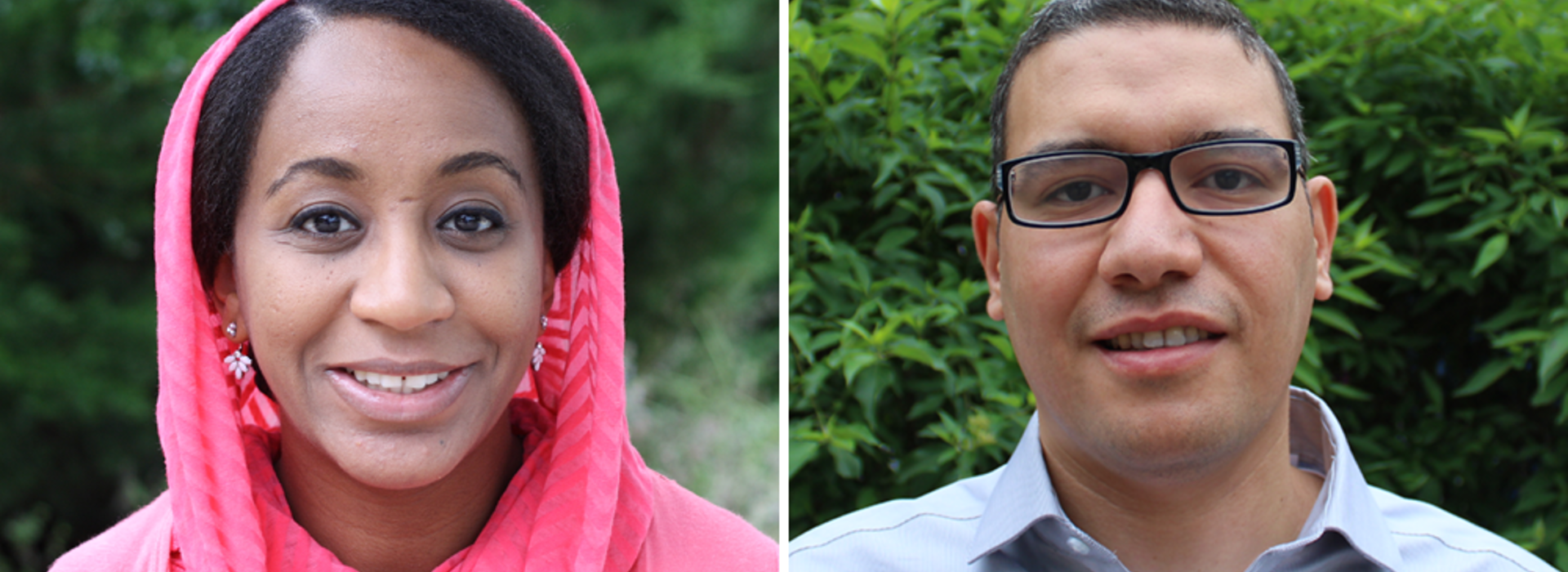
Department of Pediatrics Graduates First Class of Residents from International Immigrant Residency Track
Sahar Ahmed, MBBS, immigrated to the United States after graduating from medical school in Sudan. While she was involved in many clinical and research capacities, the road to completing a medical residency in the U.S. was one of the toughest, though, she said, “worth facing all the challenges.”
Those challenges, faced by many international medical graduates (IMGs), include U.S. requirements that say IMGs cannot practice in the U.S if they trained abroad. This is why the University of Minnesota Department of Pediatrics envisioned the International Immigrant Medical Graduate Track (IIMG), which offers a residency spot in the department’s residency program just for internationally-trained medical professionals who have immigrated to Minnesota.
Dr. Ahmed said, “I always believed in achieving my goal of becoming a pediatrician in the U.S, and the IIMG grant was the major support that provided me with this chance that was amazingly offered at this huge and very prestigious program. That provided me with a very satisfying feeling.”
The IIMG track made Dr. Ahmed’s dream of becoming a pediatrician in the U.S. true. And now, she will be among the first two graduates of the IIMG track entering the Minnesota workforce this year.
Since its start in 2016, the IIMG track has received more than $1.5 million from the Minnesota Department of Health (MDH). This year alone, the IIMG track received an MDH grant of $180,533 to create another dedicated space for an international medical graduate in the residency program. This spot is in addition to the usual number of matched pediatric residency positions.
“We’ve had a long-standing approach of incorporating IMGs into the training program,” said Track Director Mike Pitt, MD, an associate professor in the Department of Pediatrics. “This funding allows us to navigate within a flawed system which doesn’t allow the doctors who trained outside of the U.S. to practice without completing a full residency here by providing an extra residency spot specifically for IMGs who are already living in Minnesota.”
The IIMG track started in 2016 after the MDH requested more diverse doctors. Because 70% of the pediatricians in the state have completed their training at the University of Minnesota, it seemed obvious to the Department of Pediatrics that it would take part in this initiative. The track has added one additional IMG to its program since its inception. In addition, the program has expanded to offer clinical experiences for IMGs who did not get accepted to the program, so they can be more competitive as an applicant for other residency programs.
In order to be eligible for the track, an IMG must have lived in Minnesota for at least two years and must commit to practicing in primary care pediatrics in Minnesota upon graduation.
“There are not enough doctors,” said Dr. Pitt, who believes this program is one of the most rewarding ventures of his career. “It’s a win-win for Minnesota.”
Khaled Mohammed, MB, ChB, will also be graduating with Dr. Ahmed. Like Dr. Ahmed, Dr. Mohammed immigrated to the U.S. after completing medical school and practicing community medicine in Egypt. Dr. Mohammed said, “The IMG program is different because it looks at the IMG candidate as a whole package—not only scores and year of graduation. They provide us with a lot of support and mentorships, which was very helpful. Practicing in another country is a lot different from practicing here.”
The IIMG track is enriching for both IMGs and U.S.-trained medical students, who can see that the system in which they trained is not the only effective way to prepare doctors.
“It’s important that we continue to bring all kinds of people into our program,” said senior residency administrator in the Department of Pediatrics, Amy Gaug. “You keep learning. You keep trying. You keep doing your best for IMGs and for Minnesota, as well.”
While the track helps Minnesota retain doctors and helps IMG residents practice medicine, it’s also designed to help a specific audience: children. Dr. Pitt said the Department of Pediatrics is committed to this initiative because of the subset that it continues to impact most, noting “Children do better when they have access to pediatricians who have had similar life experiences to their own.”